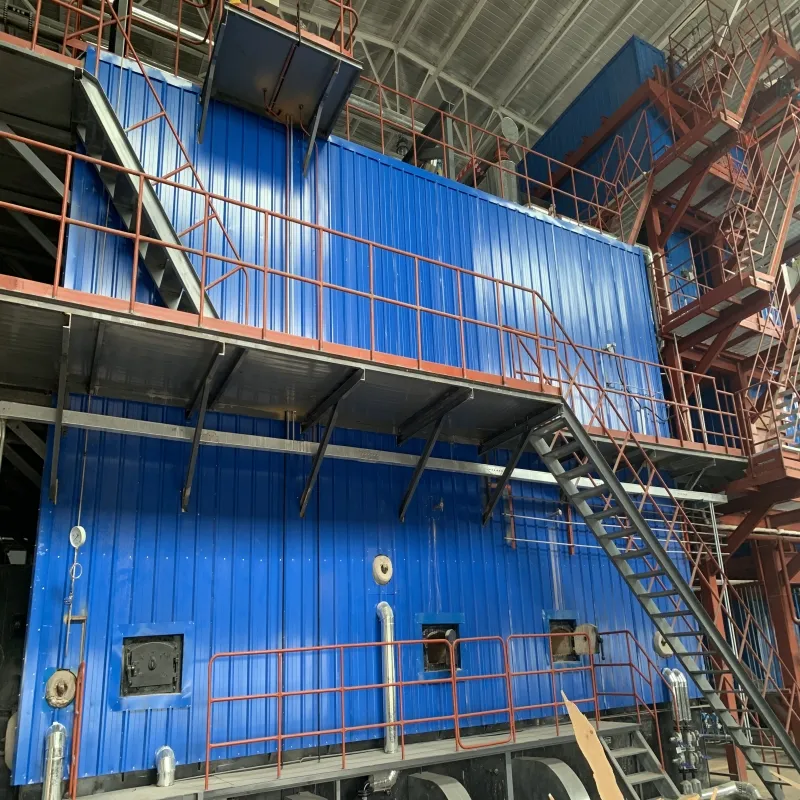
Okt . 17, 2024 11:56 Back to list
Optimal Temperature Settings for Hot Water Boilers in Residential Applications
Understanding Hot Water Boiler Water Temperature
Hot water boilers are essential components in many residential and commercial heating systems. They function primarily to heat water for various applications, such as space heating, sanitation, and industrial processes. One of the critical factors that influence the efficiency and safety of a hot water boiler is its operating water temperature. Understanding hot water boiler water temperature is crucial for optimizing performance and ensuring safe operation.
The Basics of Boiler Water Temperature
Boiler water temperature typically refers to the temperature of the water that is heated within the boiler circuit. This temperature can significantly affect the boiler's efficiency, energy consumption, and the overall heating output. Generally, a higher water temperature means more heat output, but it also involves increased energy usage and potential risks.
Common operating temperatures for hot water boilers range from 140°F (60°C) to 180°F (82°C), depending on the system design and requirements. However, there are cases where temperatures may exceed this range, especially in industrial applications where high-pressure steam is generated.
Factors Affecting Boiler Temperature
Several factors influence the optimal water temperature in a hot water boiler
1. System Demand The specific heating requirements of the building determine ideal water temperatures. For instance, residential systems may not demand temperatures as high as commercial buildings, which often require extensive heating services.
2. Type of Heating System Different heating systems operate efficiently at various water temperatures. Radiant heating systems may require lower temperatures than standard baseboard systems. Understanding the type of heating system is critical to maintaining an efficient hot water boiler.
3. Fuel Type The type of fuel used to heat the water also plays a significant role. Gas-fired, oil-fired, and electric boilers all have different operational characteristics and ideal temperature ranges.
hot water boiler water temperature

4. External Environment Outdoor temperatures can impact the required indoor temperatures, thus influencing the boiler's water temperature. In colder climates, higher water temperatures may be necessary to maintain comfort levels indoors.
Efficiency and Safety Considerations
Maintaining the correct water temperature is crucial for both efficiency and safety. Operating at too high a temperature can lead to various issues
- Increased Energy Costs Higher water temperatures will lead to increased energy consumption, raising utility bills. - Wear and Tear Consistently operating at higher temperatures can cause accelerated wear on boiler components, resulting in more frequent maintenance and potentially costly repairs. - Scaling and Corrosion Hot water boilers operating at excessive temperatures may experience scaling and corrosion, leading to reduced efficiency and possibly system failures.
On the safety side, water temperatures above 140°F can pose scalding risks, especially in domestic hot water applications. It is essential to install mixing valves to temper the hot water before it reaches faucets or fixtures.
Regulatory and Compliance Aspects
Many regions have specific regulations regarding the operation of hot water boilers, particularly concerning temperature settings to ensure safety and efficiency. For residential systems, it's advisable to keep water temperatures below 140°F to minimize the risk of scalding. Regular inspections and compliance checks are crucial for maintaining adherence to local safety codes.
Conclusion
Understanding hot water boiler water temperature is pivotal for effective heating system operation. Each boiler system is unique, with specific requirements based on usage, construction, and environmental factors. Maintaining optimal temperatures not only enhances energy efficiency but also ensures safety and longevity of the system. It is imperative for owners and operators to regularly monitor and adjust temperatures based on real-time demands and environmental conditions, ensuring that the boiler operates within safe and efficient parameters. Regular maintenance and adherence to guidelines will provide a reliable and comfortable environment for all users.
-
Best Steam Boiler Design PDF Free Design Calculation & Diagram Downloads
NewsJun.10,2025
-
Hot Boiler Water Heater Efficient Heating Solutions for Home & Commercial Use
NewsJun.10,2025
-
Steam Boiler Safety Devices High-Quality Protection Valves
NewsJun.10,2025
-
Ultimate Steam Boiler Checklist for Safety & Efficiency
NewsJun.10,2025
-
Optimal Hot Water Boiler Temperature Setting Guide
NewsJun.10,2025
-
Effective Hot Water Boiler Chemical Treatment Protect & Maintain
NewsJun.09,2025
Related PRODUCTS






















